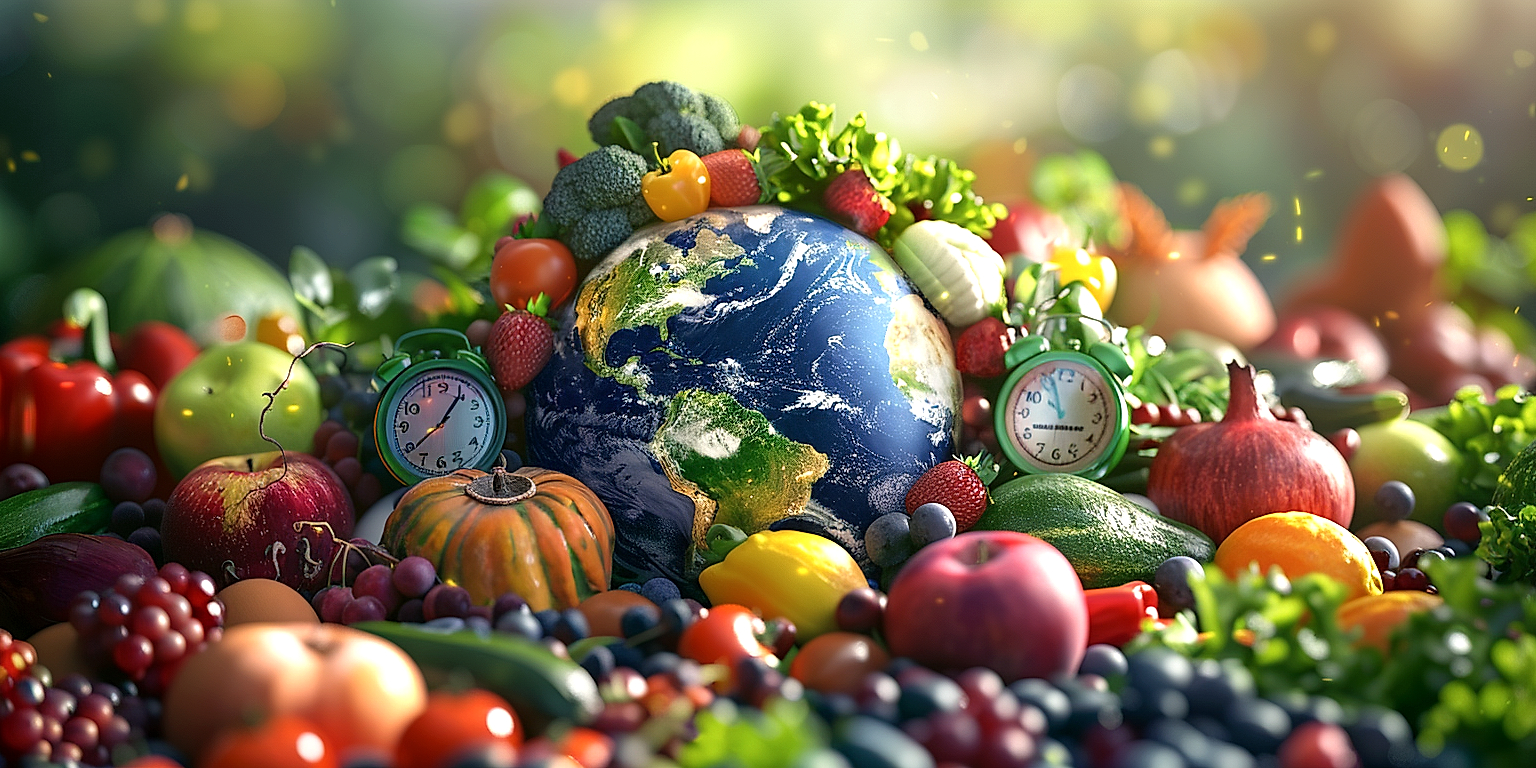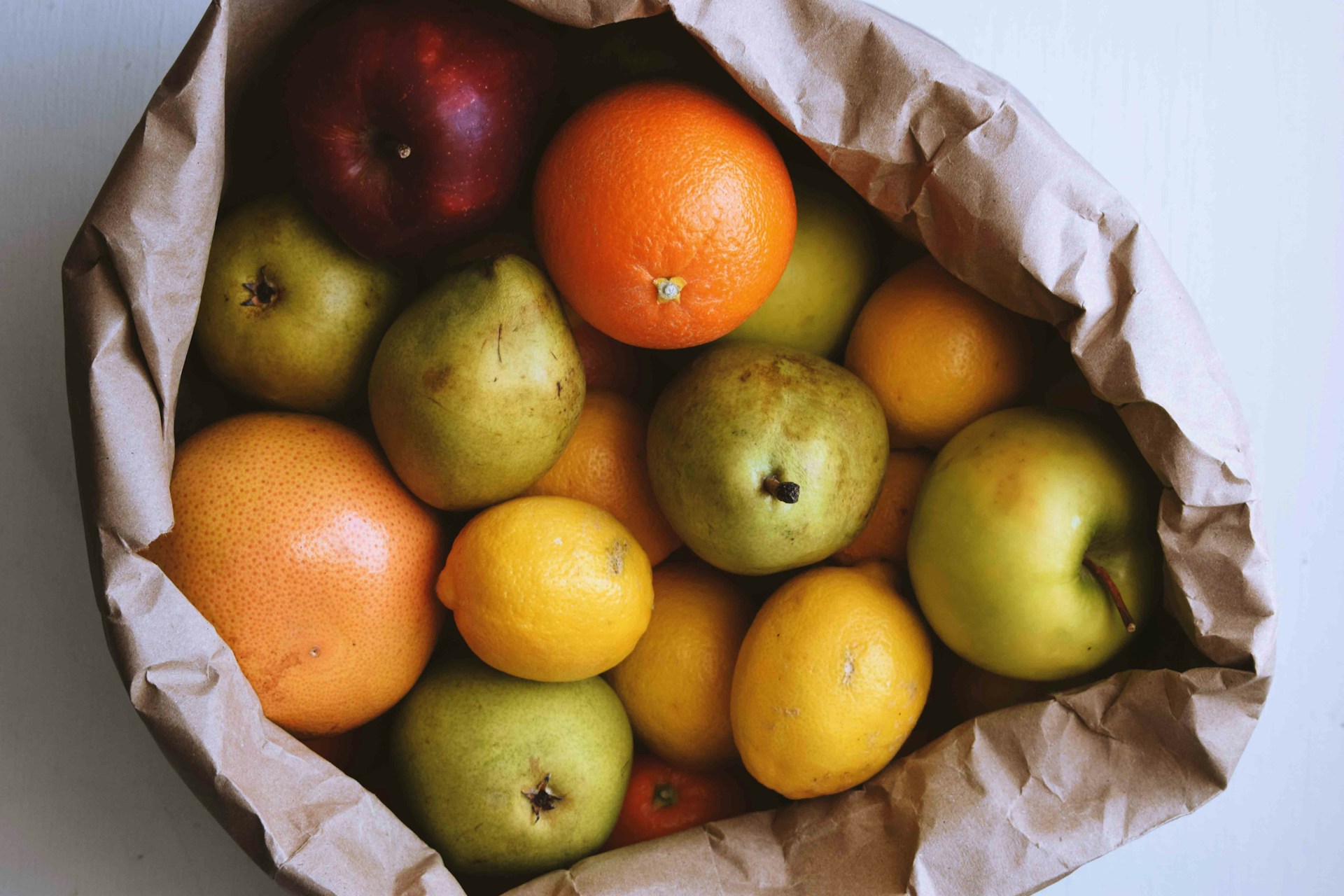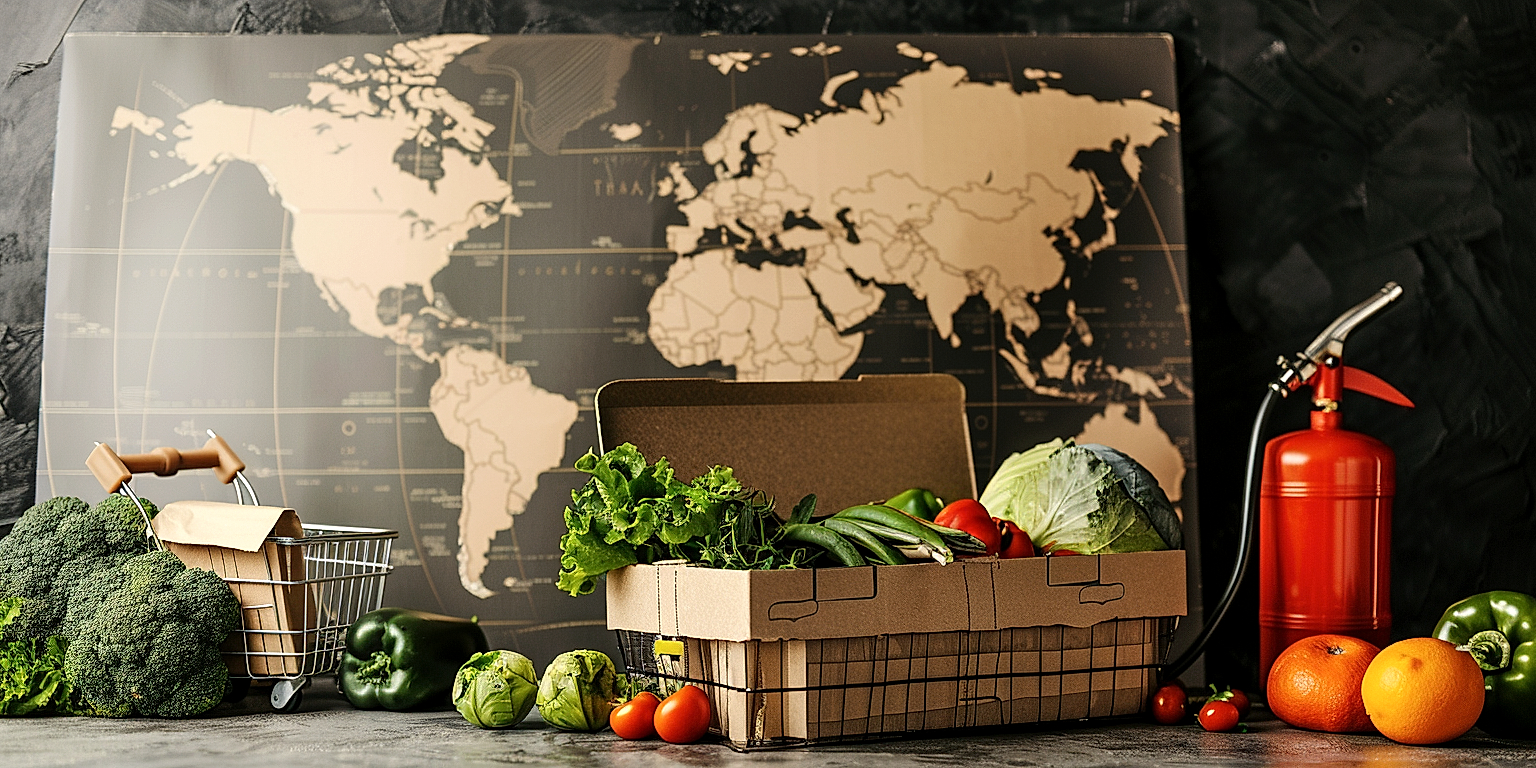As they say, the customer is always right, and this has never been more applicable than in today’s produce shipping industry.
Emerging consumer demands are altering the landscape of the sector, ushering in a new era of operations.
As consumers become more discerning, they not only expect, but demand, quality, timeliness, and transparency.
Such requirements have become pivotal in shaping how businesses transport their goods.
Any company that dismisses these escalating demands risks being left behind.
This monumental shift in consumer expectation marks a significant turning point, consequently redefining the rules of the game in produce shipping.
Consumer Demands Redefining Produce Shipping Business
1. Quicker Delivery Times
Within the sphere of the modern-day produce shipping business, there’s a growing emphasis on quicker delivery times.
Driven by fast-paced lifestyles and the preference for fresh produce, consumers are raising their expectations for expedited delivery.
Moreover, with the advent of various technology-based solutions, faster shipping has become a pivotal aspect that redefines the way businesses operate.
The trend of quicker delivery times has risen to a level that it has become a defining factor in determining the success or failure of a produce shipping business.
On-demand delivery, same-day delivery, and even delivery within an hour are concepts that are no longer alien to consumers, thanks to the e-commerce revolution.
In relation to produce shipping, speedy delivery assumes greater significance considering the short shelf-life of fruits and vegetables.
Faster delivery not only ensures that the produce reaches the consumer while it is still fresh but also reduces the occurrences of goods getting spoilt or wasted.
What underlies this new demand is the shifting consumer mentality that values convenience and immediate gratification over traditional shopping trips to the local grocery store.
A significant challenge posed by this is the need for businesses to fundamentally alter their supply chain logistics.
These necessitate investments in real-time tracking technologies, smart warehousing systems, and more biodiverse farm locations to meet the demand for speedier delivery times.
As the stakes continue to rise, companies are turning towards innovative solutions like drone delivery or hiring local contract drivers for last-mile delivery to cut down on delivery time.
To deliver on their promise of quicker delivery times, businesses must focus on improving their inventory and order management systems.
The ability to accurately predict demand and manage the stock effectively becomes crucial in ensuring speedy, yet cost-effective shipping.
Establishing a sophisticated network of delivery channels while ensuring highest quality could turn out to be a game-changer in the produce shipping industry.
This consumer demand for quicker delivery times is bringing about a transformation in the industry standards of the produce shipping business.
The wheels of change are already in motion and the industry is gearing up to deliver not just fresh produce, but also fresh consumer experiences.
2. Ethical, Sustainable Farming
One of the emerging trends in the industry includes an increased demand for produce originating from ethical, sustainable farming practices.
Consumers all over the world are becoming more conscious about the foods that they eat, including where and how they are produced.
These trends have been shaped by a variety of factors including transparency in the food supply chain, growing health concerns, and a desire to preserve the environment for future generations.
For instance, organic farming is seen as a method of farming that is significantly more ethical and sustainable compared to the conventional farming technique.
Organic farming eliminates the use of synthetic fertilizers, pesticides, and genetically manipulated organisms that often affect the environmental stability negatively.
Sustainable agriculture practices also enhance the biodiversity of the ecosystem, contributing to balanced natural systems.
Consumers are now more inclined to pay a premium price for produce that is grown following the principles of organic and sustainable farming, which prioritizes the well-being of the earth and its inhabitants.
Ultimately, the demand for ethical, sustainable produce has exerted pressure on the farming industry, necessitating an overhaul of long-standing farming and shipping practices to align more closely with eco-friendly methods of cultivation.
This consumer shift towards ethical farming can be viewed as an opportunity by farmers and businesses in the produce shipping business.
By embracing ethical farming practices, not only can they benefit from a significant increase in market share, but they also have the opportunity to reduce their overall ecological footprint.
Some businesses in the industry are also exploring innovative farming techniques such as aquaponics and hydroponics that offer additional efficiency and sustainability.
These techniques rely on recirculating water systems, thus using a fraction of the water compared to traditional farming methods.
They also eliminate the need for soil and can be set up in urban environments, therefore reducing the distance produce needs to be shipped from farm to consumer, further reducing carbon emissions.
Blockchain technology is another tool being employed to improve the transparency of the supply chain, providing all entities involved, the ability to trace the journey of produce from farm to fork.
As consumers demand more transparency and traceability in the produce they purchase, investments in such technologies and farming practices are anticipated to become increasingly valuable.
The future of sustainable, ethical farming, therefore, hinges primarily on clever uses of technology and adapting to the ever-changing consumer demands.
3. Organic and Natural Products
The rising trend in the shipping industry is the increased demand for organic and natural products.
Not only does this signal a shift in consumer preferences towards healthier options, but it also represents a significant change within the traditional shipping business model.
Now, more than ever, consumers are becoming conscious of what they eat, and where those products come from.
The ‘farm to table’ movement is gaining momentum, further fueling the demand for organic and natural products within the shipping business.
Consumers are not just looking for any organic products, but are increasingly demanding certified organic products.
This demand for certification stems from a need for assurance that the food they consume is indeed organic, and that it meets certain standards.
This guarantee can only be provided through strict certification processes, which further increase the investment required from the shipper.
Furthermore, the transit conditions necessary to maintain the integrity of organic products, are often more rigorous than those of traditional produce.
This results in higher costs, which ultimately need to be absorbed either by the shipper, or passed on to the consumer in the form of higher prices.
In addition to this, the trend of organic food consumption is no longer confined to certain markets or consumer segments.
It has permeated across all strata of society, making it a mainstream movement that cannot be ignored by the shipping industry.
The challenge for the shipping industry lies in balancing these higher costs with the increased demand and willingness to pay from consumers.
Moreover, there is also a social responsibility angle to consider, as organic farming practices are seen as more environmentally friendly than conventional ones.
These changing consumer demands are thus redefining the shipping industry, with organic and natural products playing a significant role in this transformation.
The future of the shipping industry may very well lie in its ability to effectively, and sustainably, meet these emerging consumer demands.
4. Produce Tracking Capabilities
The evolving demands of consumers have made a significant impact on the produce shipping business, specifically in the realm of produce tracking capabilities.
Consumers are not merely satisfied with knowing the origin and type of produce they are buying; they desire a thorough understanding of the journey their food goes through from farm to table.
This prompts businesses involved in produce shipping to invest heavily in tracking technologies like radio frequency identification (RFID) and Global Positioning System (GPS).
These technologies make it easier to track produce from the point of origin to the point of purchase, ensuring transparency and bolstering customer confidence.
A significant shift in the industry is the rise of blockchain technology in tracking.
Blockchain technology creates a decentralized, tamper-proof digital ledger of transactions which can be used to accurately track the journey of produce, eliminating chances of fraud and misinformation.
This capability is especially important considering the rise in consumer consciousness about issues like ethical sourcing and environmental sustainability.
By having access to detailed, verifiable information about the produce’s journey, consumers can make informed purchasing decisions based on their personal ethics and convictions.
This new demand creates a higher standard for all players in the produce shipping business, challenging them to employ innovative tracking technologies and be more transparent about their processes.
This customer-centric approach in turn results in businesses paying more attention to ethical and sustainable practices, signaling a positive shift in the industry.
Furthermore, enhanced tracking abilities help businesses improve their supply chain efficiency by identifying bottlenecks and inefficiencies.
For instance, if a shipment gets delayed, the tracking system can provide real-time updates to both the business and the consumer, freeing up resources that would have otherwise been spent on handling customer complaints and inquiries.
From a business standpoint, it can help optimize inventory management by providing valuable insights on product movement, reducing waste, and improving turnover.
This way, produce tracking capabilities redefine the produce shipping business by shifting the dynamics toward a more consumer-centric, transparent, and efficient operation.
Therefore, businesses that adapt to this demand and invest in improving their tracking abilities will likely reap significant benefits in terms of customer satisfaction, sustainability, and operational efficiency.
5. Variety and Exotic Options
As consumer preferences evolve and people become more adventurous with their culinary choices, the demand for variety and exotic options in the produce shipping business has significantly grown.
Many consumers are now seeking out unusual and diverse fruits and vegetables that they haven’t tried before, reflecting their increased interest in global cuisines and unique flavours.
The surge in cooking and travel shows has played a large part in this shift as they often showcase exotic ingredients that prompt viewers to want to try them.
Consequently, the business of shipping exotic produce is facing a redefined operating landscape.
Beyond the common fruits and vegetables, consumers now want their local grocery stores or online platforms to stock fruits like durians, dragon fruits, rambutans, and star fruits.
This trend has compelled many companies in the produce shipping business to diversify their offerings to include such diverse and exotic items.
Successful companies are those who can keep up with this demand by procuring a vast array of produce from different regions worldwide and safely manoeuvring the complex logistics that come with shipping them.
Furthermore, these companies must comply with the rigorous import laws and regulations, as many of these exotic options are subject to specific rules to prevent the spread of pests and diseases.
While catering to the demand for exotic options, these companies also have to maintain the freshness and quality of the produce despite the long distances and extended durations of shipping.
Delivering produce that is ripe, fresh and undamaged is the key to satisfying customer expectations.
These complexities associated with the procurement and shipping of exotic produce have pushed many companies to innovate and find ways to optimize their supply chain processes.
Not just limited to fruits, the demand for varied and exotic vegetables is also on the rise.
The world of leafy greens has extended beyond lettuce and spinach to include items such as collard greens, kale, arugula, Swiss chard, and beet greens.
In conclusion, providing variety and exotic options in produce shipping is no longer an option but a necessity in today’s market.
The forward-thinking businesses that are able to address these consumer demands will not only satisfy their customers, but also distinguish themselves in the ever-competitive produce shipping industry.
6. Attractive Pricing Deals
Modern consumers demand more value for their money and this demand is reshaping the produce shipping business.
One of the key drivers of this change is the greater focus on attractive pricing deals.
With the rise of online shopping, consumers now have a world of choices at their fingertips, and this has intensified the competition among suppliers.
To attract and retain customers, businesses have to offer competitive price deals on their produce.
This is not just about providing discounts and offers, but also about creating pricing strategies that reflect the consumer perception of value.
Understanding what consumers perceive as value for money is crucial.
For some consumers, value lies in finding the cheapest price, while for others, it’s about getting the highest quality product at a reasonable price.
The challenge for shipping businesses is to strike that balance between price and product quality.
Companies need to package and deliver high-quality produce promptly, while also keeping prices competitive.
This might involve innovative pricing models such as subscription services, where customers receive regular deliveries of fresh produce for a fixed fee.
Such a pricing model offers customers the convenience of not having to reorder and provides the company with predictable revenue.
Attractive pricing deals can also take the form of volume discounts to encourage larger purchases.
For example, a company might offer a discount when customers order a certain weight or type of produce.
These pricing strategies need to be coupled with a commitment to provide the highest quality produce, sourced from ethical, sustainable farming practices.
Attractive pricing deals are therefore less about cutting costs, and more about understanding—and responding to—the modern consumer’s perception of value.
7. Consistent Product Quality
As consumers become more discerning in their purchases, consistent product quality is no longer just an option, but a mandatory requisite in the produce shipping business.
Assuring fresh, high-quality produce from farm to table is a complex task that necessitates meticulous efforts from every chain link in the supply operation.
Clients now expect, and rightly so, that produce shipped to them be of a uniform standard in terms of freshness, size, color, flavor and overall presentation.
Quality control checkpoints at every stage of the shipping process, from harvesting to packaging to delivery, ensure nutritious, delicious, visually appealing produce arrives on the consumer’s table.
Storage techniques to keep produce fresh throughout the journey, such as maintaining optimal temperatures and humidity levels within refrigerated shipping containers, are integral to consistent quality.
Vendors within the produce shipping business continuously pursue innovative technologies that enable real-time monitoring and prompt quality issues rectification.
Such technologies facilitate early detection of deviations, ensuring necessary corrective actions can be triggered timely, thus preserving the produce’s quality.
Furthermore, thorough screenings and rigorous quality assurance protocols for farms and distribution centers contribute to ensuring consistent product quality.
A high bar set for farmer partners regarding adherence to regulated farming practices results in high-quality yield. Plus, a stringent audit of the transportation and warehousing facilities ascertains sanitary conditions that support long-lasting freshness.
Consequently, all produce in transit is subjected to regular inspections to identify and eliminate any substandard items, thus maintaining a consistent quality supply.
Consistent product quality is not just about the product itself, but extends to customer service too.
Providing prompt, insightful responses to customer inquiries, proactively informing customers of any delivery challenges, and demonstrating a willingness to go above and beyond in resolving obscured issues is a component of consistency in service quality.
Training of staff at all levels on quality standards, expectations, and practices is critical to maintaining high service standards.
Moreover, businesses utilize technology to track shipment progress and delivery status in real time, enabling them to provide consumers with accurate and timely information, thus ensuring smooth, well-coordinated deliveries.
Resolving complaints regarding quality in a swift and effective manner dramatically enhances consumer trust and loyalty, leading to patronage repetition and increased business growth.
In summary, consistent product quality in the produce shipping industry is solely reliant on a multifaceted approach to deliver quality at every step of the process, from farm to consumer.
8. Increased Freshness Guarantee
The dynamic shift in consumer demands is not only challenging the traditional norms of the produce shipping business but also actively redefining them.
Today’s informed customer seeks assurance about the freshness of the produce they are buying as they are aware of the significant impact it can have on their health and well-being.
The innovation in the shipping business, therefore, is not merely an adaptational need but also presents a lucrative opportunity for businesses ready to embrace change and provide increased freshness guarantee.
Meeting this demand is a significant part of the business’ successful survival strategy and long-term growth prospects.
One of the key shifts that we are witnessing in this context is the increasing use of advanced shipping methods and technologies to maintain the freshness of the produce during transit.
Companies are investing in better refrigeration, vacuum packing, and other specialized techniques to ensure that the produce arrives at the customer’s doorstep as fresh as it was when harvested.
Increasingly, businesses are also exploring the use of innovative packaging solutions that not only protect the produce from damage but also help in maintaining its freshness.
There are different methods being explored from controlled atmosphere packaging to the use of biodegradable materials.
Another associated trend is the growing popularity of express shipping services that promise quicker delivery and by extension, fresher produce.
Courier companies are rejigging their logistics and delivery models to make such services easily available and affordable for the sellers.
At the same time, consumers are becoming willing to pay a little more for these services for the added assurance of higher freshness.
In addition, the sellers are swiftly moving towards building robust supply chain networks that promise faster turnaround times and fewer holding periods.
This helps in ensuring that the produce is not sitting in warehouses for extended durations, thus maintaining its freshness and quality.
All these efforts are collectively helping businesses offer and live up to an increased freshness guarantee, effectively redefining the produce shipping business to match fast-evolving consumer demands.
It is clear that increased freshness guarantee is becoming a non-negotiable aspect of the modern produce shipping business and companies that fail to adapt may risk losing relevance and market share.
9. Eco-Friendly Packaging
As we delve into the contemporary vision of the produce shipping industry, an unprecedented significance is attributed to Eco-Friendly Packaging.
Modern consumers are more aware and conscious about the ecological impact of the products they purchase.
This awareness extends not only to the product itself, but also to its packaging, hence, contributing to the growing demand for eco-friendly solutions.
Eco-friendly packaging in the produce shipping business not only maintains the quality and freshness of fruits and vegetables, but also contributes to the protection of the environment, aligning with the eco-consciousness of consumers.
Eco-friendly packaging solutions, such as biodegradable and compostable materials, offer dual benefits.
One, they assure consumers that their purchasing decisions are not contributing to the escalating waste issue, and two, they provide an innovative solution to maintaining product quality without causing harm to the environment.
Eco-Friendly Packaging has remarkably redefined how businesses approach their packaging strategies.
Companies are investing substantially in R&D to come up with innovative and sustainable packaging options.
The main aim is to align business operations with the growing green consumerism and also to comply with the stringent environmental regulations imposed by government bodies.
This trend is noticeably reflected in the produce shipping industry, where traditional plastic and styrofoam boxes are being replaced by biodegradable alternatives.
These eco-friendly solutions not only serve the demand for sustainable options but also to enhance consumer trust in the company’s ethical and environmental commitments.
The transformation towards Eco-Friendly Packaging in the produce shipping business is one of the most significant trends that reflects the influence of consumer demand on business practices.
Moreover, it is not just an optional improvement anymore. Rather, it has become a necessity for businesses to survive in the modern, eco-conscious consumer market.
Companies are recognizing and responding to the increasing expectation for sustainable practices in all aspects of production and distribution, including the packaging and shipping process.
This transition is directly influencing business strategies, urging companies to prioritize innovation in sustainable packaging and contribute to global environmental conservation efforts.
As businesses strive to respond to these evolving consumer demands, Eco-Friendly Packaging emerges as a key player in reshaping and redefining the produce shipping business landscape.
10. Seamless Ordering Processes
In the evolving landscape of the produce shipping business, a seamless ordering process has become a vital necessity.
In addressing the modern-day consumer’s demands and expectations, companies have realized the importance of offering a hassle-free, intuitive online ordering process.
As the trend towards online shopping continues to surge, it’s essential for businesses to capitalize on having an easily navigable, user-friendly site.
This not only includes eliminating unnecessary steps in the purchasing process but also providing clear, concise information about the product being purchased.
Factors such as concise product descriptions, clear pricing, and estimated delivery times can all contribute to making the customer experience more seamless and satisfactory.
One crucial aspect to improving the ordering process is the integration of technology.
From AI-powered chatbots for real-time assistance to advanced e-commerce platforms for quick and easy checkout, employing the right technology can significantly enhance the online shopping experience.
Moreover, dynamic websites with a responsive design ensure that the shopping experience is optimal across all devices, from desktop computers to smartphones.
This is particularly important in today’s smartphone-driven world, where most of the online shopping happens via mobile devices.
Moreover, the payment process should be secure and easy to understand.
Offering a variety of payment options, from credit cards to digital wallets, caters to the different payment preferences of customers, increasing their likelihood to complete a purchase.
Another important consideration is offering swift order confirmations and regular status updates on the delivery process.
This level of transparency not only builds trust with consumers but also keeps them informed every step of the way, making them feel valued and respected.
Furthermore, setting up a straightforward return or exchange policy is also essential in ensuring a seamless ordering process.
A clear, simplified return procedure reassures customers that they have the option to change their mind, which can significantly enhance their shopping experience and promote customer loyalty.
In essence, placing a priority on seamless ordering processes helps meet consumer demands, enhances customer satisfaction, and ultimately drives the success of a produce shipping business.
The Bottom Line
To sum it up, online farmers market proves to be a game-changer in the world of grocery shopping.
They redefine purchasing experiences with quicker delivery times, all while promoting ethical, sustainable farming.
Their offer of organic and natural products is coupled with produce tracking capabilities that increase transparency.
These digital platforms also provide a plethora of variety and exotic options.
Moreover, attractive pricing deals, product quality consistency, guaranteed freshness, eco-friendly packaging, and seamless ordering processes make online farmers markets an attractive, convenient, and responsible choice for consumers who demand more from their sellers.
Leaning into this online model means trading in not just convenience, but also values of responsibility and sustainability.




